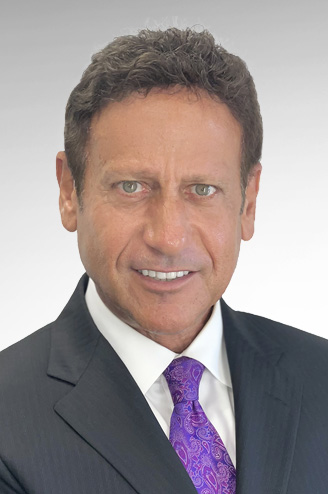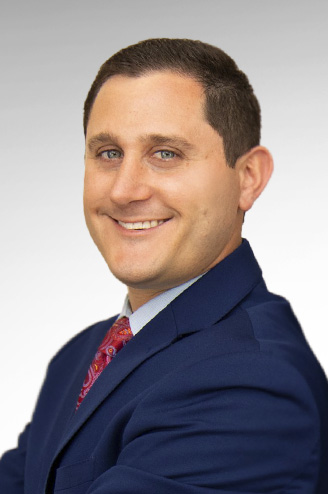Freehold Slip and Fall Accident Lawyers
Slip and fall accidents can cause significant, long-term physical harm, emotional distress, and financial burdens. The impact of these incidents extends beyond the physical injuries themselves, leading to consequences like medical bills, lost wages, and emotional trauma. These types of accidents occur on private property, in public spaces, or even at businesses, so it is important to understand your legal rights.
At Ellis Law, our Freehold slip and fall accident lawyers have considerable experience handling personal injury cases. We are committed to helping clients recover compensation for their injuries and hold negligent property owners accountable for unsafe conditions.
What Are the Most Common Causes of Slip and Fall Accidents?
Common causes of these accidents include wet or slippery floors, uneven walking surfaces, inadequate lighting, poorly maintained stairways, and cluttered walkways. These hazards can lead to serious injuries like broken bones, head trauma, sprains, and back or spinal cord injuries.
Property owners are generally expected to maintain their premises in a safe condition. If they fail to do so and someone is injured as a result, the injured party may have the right to pursue compensation. However, it can be difficult to establish liability, as property owners often argue that the injured person was responsible for what happened.
How Can I Prove Liability in a Slip and Fall Case?
Proving liability in a slip and fall case can be a challenging task, as it requires demonstrating that the property owner was negligent in maintaining the property. To establish liability, it must be shown that the owner knew or should have known about the hazardous condition that caused the accident and that they failed to take appropriate action to correct it.
In some instances, property owners may argue that they were unaware of the dangerous condition, or they may claim that the injured party was not paying attention and caused the accident themselves. Gathering evidence like witness statements, photographs of the accident scene, and maintenance records strengthens cases. The presence of a hazardous condition that remained unaddressed for an unreasonable amount of time can significantly support a negligence claim.
What Compensation Can I Receive From a Slip and Fall Lawsuit?
Our Freehold slip and fall accident lawyers pursue damages to cover a wide range of expenses related to these injuries. These expenses typically include medical bills, lost wages from time off work, rehabilitation costs, and other out-of-pocket expenses. In addition to these economic damages, individuals who have suffered severe or long-lasting injuries may be entitled to compensation for pain and suffering, emotional distress, and diminished quality of life. Each case is unique, and the amount of compensation depends on the severity of the injuries, the impact on the individual’s life, and the degree of negligence involved.
How Long Do I Have to File a Slip and Fall Lawsuit in New Jersey?
The statute of limitations for filing a slip and fall lawsuit in New Jersey is typically two years from the date of the accident. This means you have two years to file a claim for compensation before losing the right to pursue legal action. However, there are exceptions, particularly if the accident occurred on government-owned property or if the injured party was underage or incapacitated at the time of the accident.
We recommend consulting with our Freehold slip and fall accident lawyers as soon as possible following your injury. Waiting too long can complicate the case and result in the loss of valuable evidence. Additionally, witnesses’ memories can fade, and property conditions can change over time, making it more difficult to prove negligence.
What Should I Do Immediately After a Slip and Fall Accident?
The first priority is to seek medical attention, even if you seemingly feel okay. Some injuries may not be immediately apparent but can worsen over time. A medical professional can assess your condition, document the injuries, and provide necessary treatment.
Also, be sure to report the accident to the property owner or manager before leaving the scene. This report creates a record of the incident and may be important when seeking compensation. We also suggest taking photographs of the accident scene, including any hazardous conditions that caused the fall, such as wet floors, cracked pavement, or poor lighting.
Finally, try to gather the contact information of any witnesses who saw the accident occur. This evidence can play a significant role in proving the property owner’s negligence and strengthening your case.
What Are the Challenges of a Slip and Fall Case?
Slip and fall cases can be difficult to pursue for several reasons, and one of the primary challenges is the issue of liability. Property owners often argue that the injured party was at fault or that the hazardous condition was not foreseeable. In addition, insurance companies may try to minimize the payout by questioning the severity of the injury or attempting to disprove the negligence of the property owner.
Another challenge is the burden of proof. In a slip and fall case, you must prove that the property owner was negligent and that their negligence directly caused the accident. This can be difficult if there is insufficient evidence or if the property owner can demonstrate that the hazardous condition was not present for a sufficient period of time to allow for corrective action.
Consult With Our Experienced Freehold Slip and Fall Accident Lawyers at Ellis Law Today
If you were injured in a slip and fall accident, the Freehold slip and fall accident lawyers at Ellis Law can explain your legal options. We have a long history of representing clients in personal injury cases, and our team is dedicated to obtaining the best possible outcomes. For a free consultation, call our Freehold, New Jersey office at 732-308-0200 or complete our online form. We proudly serve clients in Asbury Park, East Brunswick, Toms River, Middletown, Jersey City, Long Branch, Neptune, Hudson County, Union County, Essex County, Monmouth County, Marlboro, and Ocean County, as well as Brooklyn and New York City.






